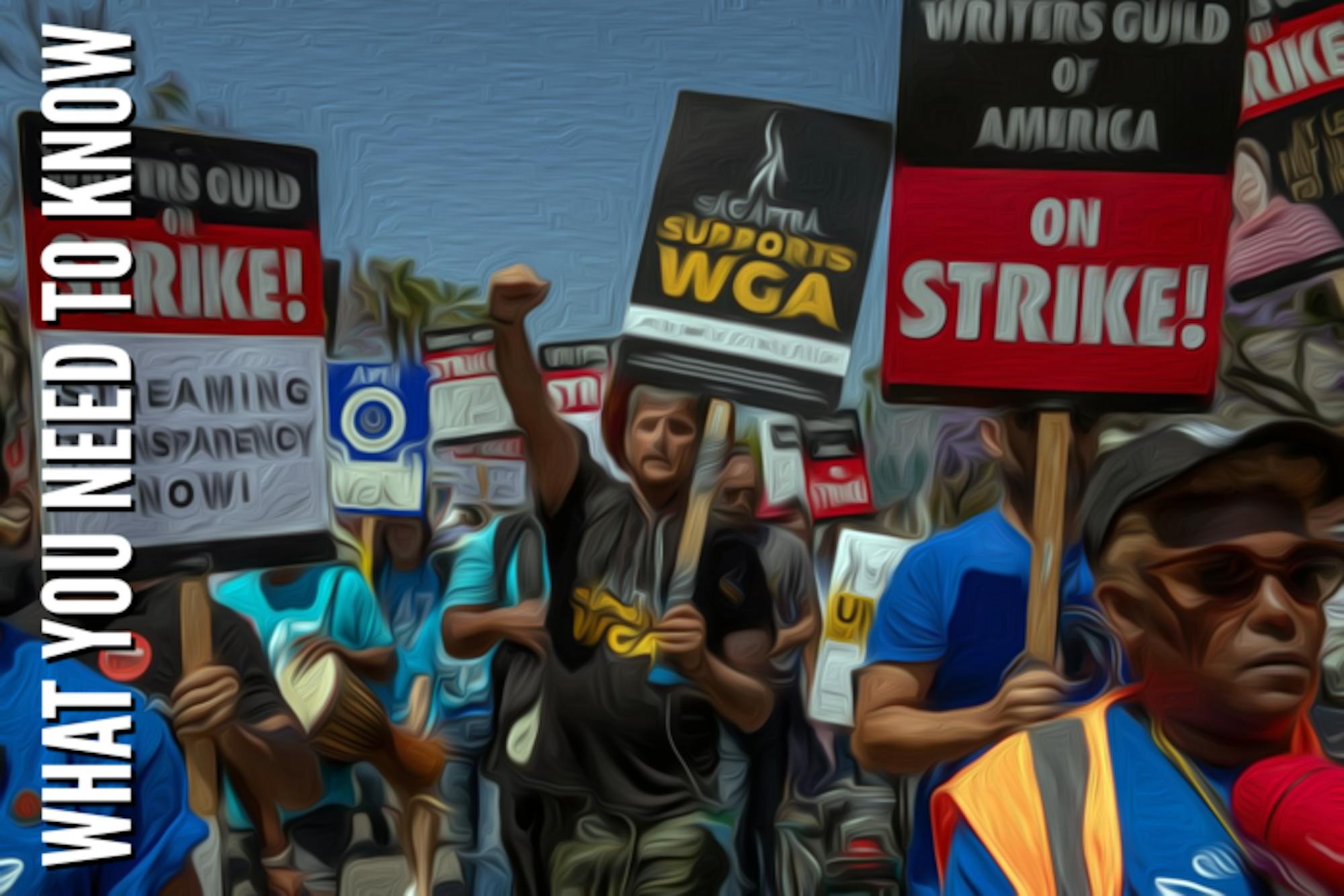
Early this year, the Writers Guild of America (WGA) entered negotiations with the Alliance of Motion Picture and Television Producers (AMPTP) over paying screenwriters for movies and TV shows on all platforms better wages. Among the AMPTP’s members are Netflix, Amazon, Apple TV+, Disney, and Warner Bros. Discovery, all well known studios that everyday consumers turn to for streaming media.
As of late April, however, the AMPTP had rejected the WGA’s requests and negotiations had not been resolved. As a result, the WGA officially went on strike May 2. Pictures immediately went viral of celebrity actors and writers on the picket lines — Tina Fey, Seth Meyers and Pete Davidson among the many — supporting the WGA’s cause, and not long after, word of SAG-AFTRA (the Screen Actors Guild and American Federation of Television and Radio Artists) possibly joining the strike started circulating.
It was no surprise when SAG-AFTRA went on strike July 14, but the historical significance of a double strike in the entertainment industry is huge. A double strike had not happened since the 1960s, and it was a long time coming. Streaming services have overtaken cable television in viewership in recent years. The high demand for content has put a strain on all involved, and the public has been hearing about concerns within the industry for a while now.
Among the most significant problems with wages at the moment are residuals. As of right now, when a show is streamed on any of these services, the writers and actors receive pay for their work only once. That means that for shows that boom to the top of Netflix’s Top 10 their first weekend, like "Wednesday" did recently, none of the people behind the scenes get compensated for its streaming success. Considering the fact that it is their art and work, the idea that big studios are making ridiculous amounts from viewership and subscriptions and not paying their writers and actors livable wages is absurd.
Both unions have specific requests and concerns apart from the residuals, but one that has been in the news recently is AI cloning of actors’ voices and faces. We’ve all heard the audios on TikTok of AI song covers, but AI could pose a real problem for people spending countless hours in studios and behind the scenes working on screen projects in the future. Protecting their livelihood before things get out of hand is, validly, a priority for the union members.
While both unions remain on strike as of September 11, a few smaller studios have gained approval from SAG-AFTRA to move forward with specific projects. Among the most well-known is A24, whose hit movies like "Everything, Everywhere, All at Once" have been putting their name on the map recently. These smaller studios and productions have received approval due to having no association with the AMPTP.
Regardless of the viral pictures of celebrities protesting for livable wages, it is important to note that this has never been about the millionaires who are a part of these unions. It's about the people attempting to make a living from their art, who are working tirelessly behind the scenes to make content at an insane pace for all of us to consume and bond over every day. It is important we all recognize that the longer the AMPTP refuses to comply with any terms the unions have put forward, the more jobs are lost behind the scenes. Stagehands, costumers, VFX artists and countless others are without jobs at the moment alongside those protesting. As all of these issues come to light, we as the audience should be more mindful of what we consume and how we credit these incredible artists. In a few years, when no movies or shows are coming out because of the delay in work right now, let’s remember the importance of thanking those who work hard day in and day out to provide us with laughs, smiles and tears whenever we need them.
What you need to know about the WGA and SAG-AFTRA double strike
Anna Falk | The Observer









